By Lisa Bland –
Lisa loves being on and near the water and has lived in wild beautiful places for as long as she can remember. The tidal pools and temperate rainforests of rural communities in coastal British Columbia where she grew up shaped her sense of place, passion, and commitment towards caring for the natural world. Coming from a family history of homesteaders, fishermen, fisheries conservationists, and creative artists, Lisa was inspired to advocate for nature at an early age.
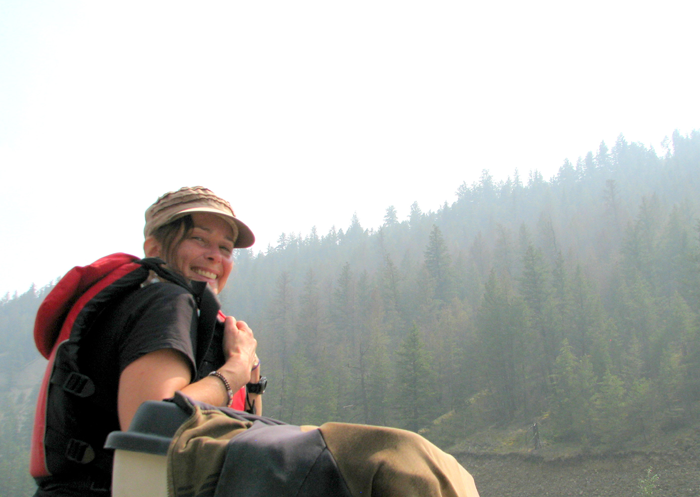
Over the past 25 years, she has volunteered with conservation and watershed groups in coastal and inland BC. Lisa is a certified Fisheries Technician and has worked as a field researcher doing forestry, fisheries, bird, and plant studies. She has also been involved in writing and publishing for the last 18 years and holds certificates in professional publication writing, magazine publishing, and coastal eco-adventure tourism. Lisa currently lives in Williams Lake and for the past six and-a-half years has been the owner and publisher of The Green Gazette, an online and in-print green news publication in the Cariboo Region.
Lisa was drawn to the Rivershed Society of BC’s (RSBC) work in the mid-1990s when she was volunteering with the Quesnel River Watershed Alliance, a community nonprofit group that also worked in collaboration with RSBC to raise awareness about the Quesnel and Fraser riversheds. She was inspired by the dynamic people taking action at a grassroots level around issues such as protecting water, forests, wildlife, and salmon from rapid resource extraction and development on the landscape. She was also inspired by the passion and commitment of RSBC’s founder and chair, Fin Donnelly. In 2000, she participated in a public day-trip, paddling in a Voyageur canoe from Prince George to Quesnel alongside Fin during his second 1,400 km swim down the entire length of the mighty Fraser River.
“I watched the RSBC’s advocacy work evolve over the years and was impressed how they immersed students in experiential learning with the Sustainable Living Leadership Program (SLLP),” she says. “Deep down, I had always wanted to participate because I knew it would be life-changing. In the initial years of the SLLP program, there was an age limit for participants, which I had already passed, but over the past few years The Green Gazette has covered many SLLP participant stories and RSBC events, and we became reconnected—and they had lifted their age limit—so I jumped at the opportunity!”
An adventurer at heart, Lisa knew experiencing the Fraser River and being in and on the water for a month with a group of young leaders was something she couldn’t pass up. “Though I have been working in conservation and advocacy for many years, there is still so much to learn about the issues in our watersheds,” she says. “Being with the group was a lot of fun and gave me hope for the future, which in turn has given me more inspiration, ideas, and stories to draw from.”
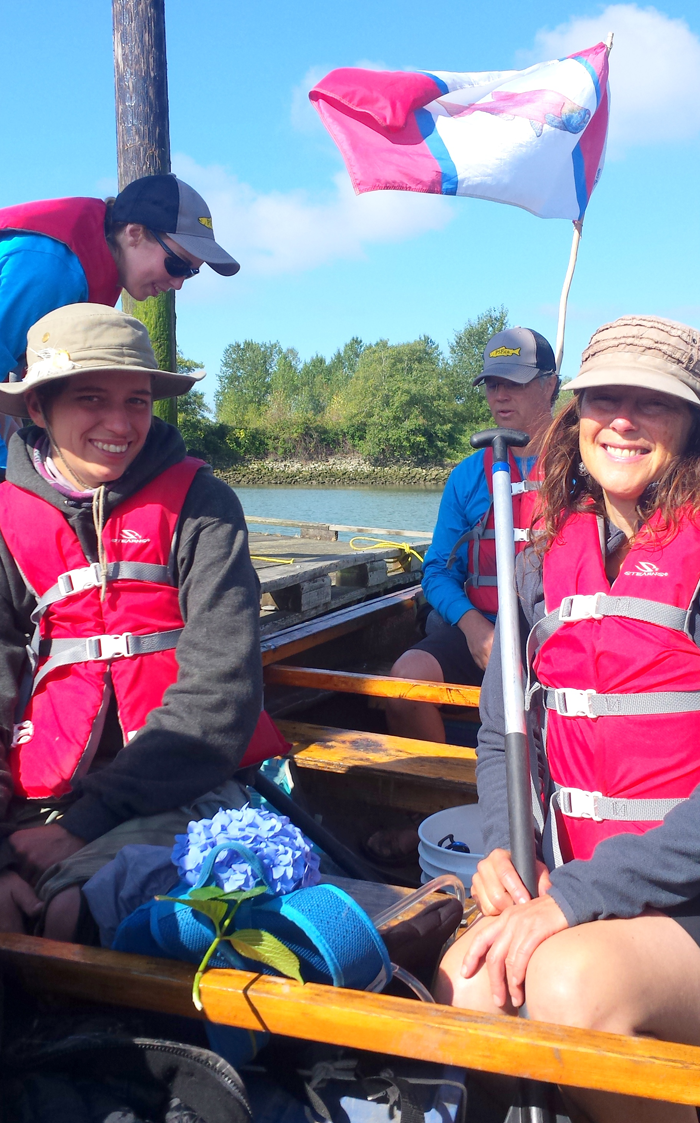
Lisa’s SLLP project included expanding The Green Gazette’s network through greater collaboration and support, creating a more sustainable business plan, publishing an article for BC River’s Day about the SLLP journey (https://thegreengazette.ca/world-rivers-day-rsbcs-fraser-river-journey-2018-sustainable-living-leadership-program/), and publishing Rivershed Story profiles about each of the 2018 SLLP participants. (See Rivershed Stories at www.thegreengazette.ca and Rivershed.com)
Lisa enjoyed learning about the participants’ perspectives and their aspirations for the future during moments of shared conversation while paddling in the Voyageur canoe, rafting the Fraser Canyon, and preparing meals together.
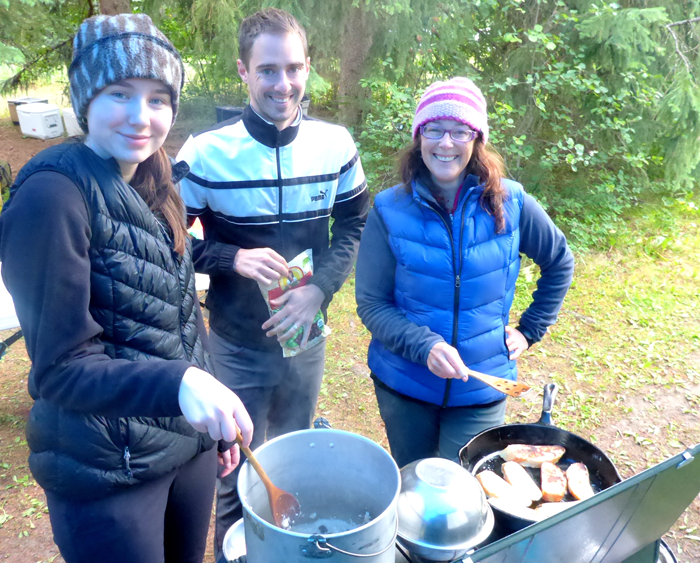
“I enjoyed many special moments with the other SLLP participants, especially in the kitchen and during our wonderful camp meals,” she says. “On the river journey, I arrived at an in-between place in my life where I could look back from where I’ve come and forward to what is still needed—like standing on a bridge between the generations. I was mentored by many leaders in the past and followed my passions into exciting work, and it felt like it was time to pass on stories and listen to what younger people are planning and thinking about in their steps to create change. I sometimes wonder, ‘Where are all the youth?’ so on this journey, it was rewarding to see the generations together.”
“Many elders form the basis of grassroots conservation groups in communities along the Fraser River,” she adds. “I could see what a gift it was for them to meet youth that care about their future—filled with energy and plans to do something positive. They need to pass on their torches. Hopefully, as we move through the generations, people will stay interested in and care about the important issues in our watersheds.”
Along the journey, Lisa learned first-hand about the tributaries that feed into the Fraser River and the communities it meets on its journey to the sea. She was struck by the tenacity of the Fraser River sockeye. “We travelled downriver taking the opposite journey from headwaters to sea as the salmon were coming upriver,” she says. “2018 was a dominant year for the sockeye return, and we saw many fish along the canyon walls—fins rising above the surface as they struggled against the current. The salmon give life to many communities along the way—we saw Indigenous people dip-netting in Lillooet, fishermen lined up on the shores of the lower Fraser, and boats coming and going.”
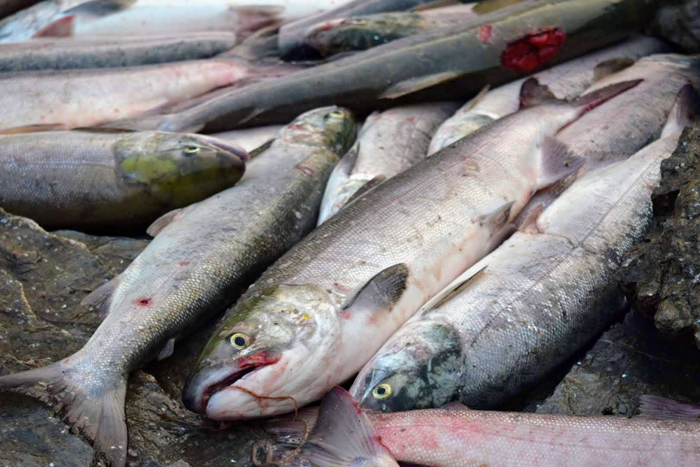
Lisa says advocacy for nature can feel like discouraging daunting work—much like swimming upstream with all the challenges she and other advocates face. “But after seeing the salmon on their epic journey, I realized their strength and ability to survive so many threats and still arrive at the headwaters and in their natal tributaries,” she says. “Glimpsing the salmon in murky or fast-flowing water, in less than ideal conditions, encouraged me to continue moving forward despite obstacles—and that if you care about something, it’s okay to struggle. To do something important and focused on the survival of the next generations is hard but worth it.”
When Lisa returned home after the journey, she travelled to Horsefly, BC to see the sockeye spawning in the Horsefly River. “It was a 27-day journey for the salmon travelling from the mouth of the Fraser to their spawning grounds in Horsefly—the same number of days we spent going downriver,” she says.“The runs were higher than expected in the Quesnel system in 2018. But even so, we are riding a fine line and their survival is at stake in the Fraser—it’s not a given that they will always find a way to recover. The salmon go on an incredible journey every year, and it’s something we need to respect and protect.”
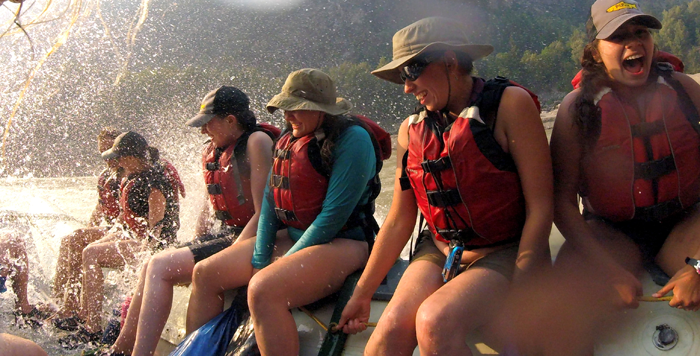
Lisa’s highlights on the journey included the exhilaration and laughter while rafting through big rapids, rafting through the remote Fraser Canyon, camping on massive sandy banks along the river, finding glowing agates on the beaches, being away from cell service, observing changes in the vegetation and animal life along the way, and hearing stories about the history of the Indigenous people that have always lived and gathered in these places. She was also struck by the generosity of so many communities. “When we arrived in Lillooet, there was a great circle of people waiting on the beach with beautiful food, drumming, and singing,” she says. “It was so touching to realize we were being celebrated.”
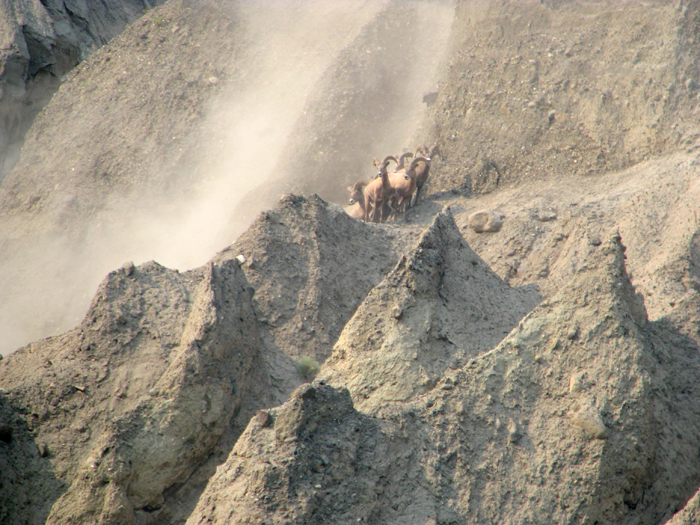
Another highlight was how organized the RSBC SLLP program was, and the amount of funding, effort, collaboration, expertise, and logistical planning that went into the safety, caring, and support of the participants. “I felt very privileged to take part in this journey, and to know that I was being invested in for the work that I care about and will continue to do,” says Lisa.
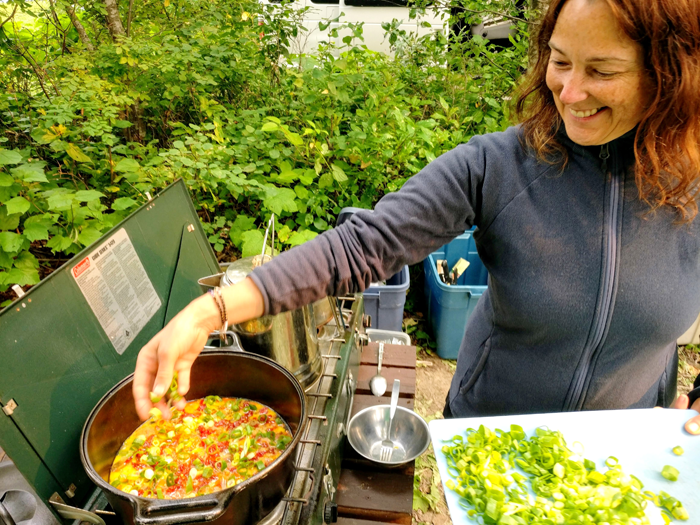
One of the challenges she overcame was realizing that she finds her strength alone in nature. “I may push to keep up with others in a group or in striving towards my goals but I am also sensitive and enjoy being quiet, talking with people one-on-one, or staying behind the scenes,” she says. “I love having time to rest in the beauty of nature. I recognized I don’t always need to push so hard and can have ease and flow in my life and still be supported. By taking better care of myself, I’ll be more effective in addressing the problems of the world.”
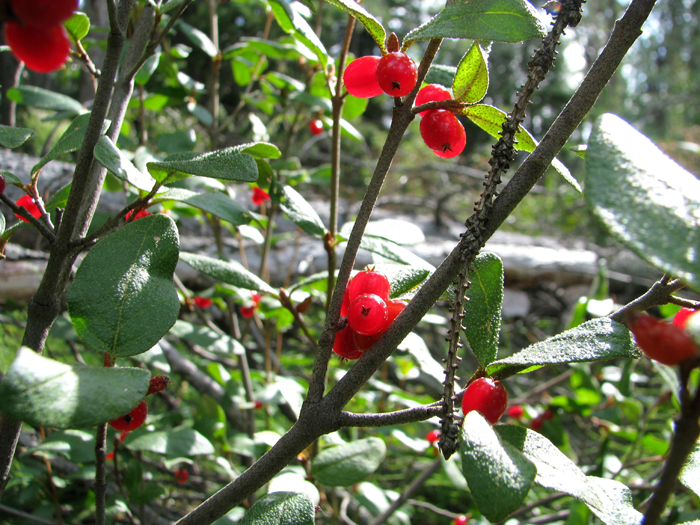
Being on the river created more space in her life to reflect and has inspired her to think about how to most effectively use her time and talents. “I want to spend more time working with others collectively, and I think if we flow in the directions where we’re gifted, we don’t have to figure everything out alone and can celebrate our individuality and diversity and stay strong together,” she says. “In my work with The Green Gazette, I want to continue featuring stories about people working to create positive change, however big or small, and inspiring others to care about their health and well-being, their communities, and the natural world.”
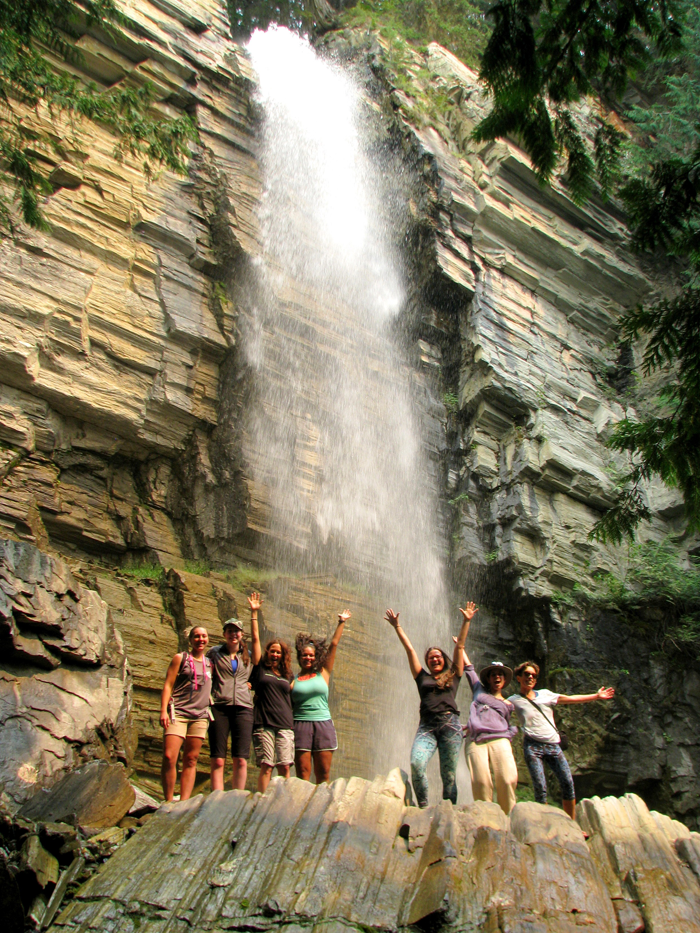

https://rivershed.com/get-involved/sustainable-living-leadership-program/about-the-sllp/
